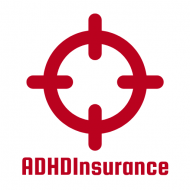Attention-Deficit/Hyperactivity Disorder (ADHD) affects millions of individuals, influencing not only their daily lives but also their access to essential healthcare services. Navigating the complexities of insurance coverage for ADHD treatment can be daunting for many families and individuals. Understanding the nuances of ADHD insurance coverage is paramount for ensuring that those affected receive the care they need without facing overwhelming financial burdens. This article aims to provide clear answers to common questions surrounding ADHD insurance, along with essential insights into treatment options and insurance alternatives.
Understanding ADHD Insurance Coverage: Key Questions Answered
The first question commonly posed by individuals seeking treatment for ADHD is whether their insurance plan covers mental health services, specifically related to ADHD. Most major health insurance plans in the United States are required by law to provide comparable coverage for mental health services as they do for physical health services, thanks to the Mental Health Parity and Addiction Equity Act. However, the extent of coverage can vary significantly between different insurance providers and plans. It is crucial for policyholders to review their benefits handbook or consult directly with their insurance provider to clarify coverage specifics.
F.A.Q
Can ADHD be covered by insurance ?
Is ADHD considered a disability for insurance ?
Is done ADHD covered by insurance ?
What benefits can I get if I have ADHD ?
Does the government give money to people with ADHD ?
What are the 5 levels of ADHD ?
What is the 10 3 rule for ADHD ?
What is the rarest ADHD type ?
Is ADHD a form of autism ?
Another frequent inquiry pertains to the types of treatments that are typically covered under ADHD insurance policies. Coverage often includes a wide range of services, such as evaluations, therapy sessions (both behavioral and cognitive), medication management, and educational support. However, not all plans cover the same treatments or may impose limits on the number of sessions covered annually. Furthermore, some insurance plans may require pre-authorization for certain medications or treatments, meaning that individuals must obtain prior approval before these services can be rendered. Understanding these limitations is critical for effective treatment planning.
Essential Insights into ADHD Treatment and Insurance Options
When it comes to ADHD treatment, medication and therapy are the most common interventions. Stimulant medications, such as methylphenidate and amphetamines, are frequently prescribed and are generally covered by most insurance plans. However, non-stimulant medications, such as atomoxetine, may also be covered but could have different copays or coverage conditions. Patients should be proactive in discussing medication options with their healthcare providers and verifying which prescriptions are covered under their insurance plans to avoid unexpected expenses.
In addition to traditional insurance plans, individuals seeking ADHD treatment may also explore alternative options, such as Health Savings Accounts (HSAs) or Flexible Spending Accounts (FSAs). These accounts allow individuals to set aside pre-tax dollars specifically for healthcare expenses, including ADHD treatments. Furthermore, some states offer programs designed to assist families with ADHD-related expenses, which can be a valuable resource for those whose insurance coverage is limited. By actively seeking out these options, individuals can better manage the financial implications of ADHD treatment and ensure they receive the necessary care.
Navigating ADHD insurance coverage can be complex, but understanding your rights and the specifics of your insurance plan is essential for accessing the necessary treatment. By asking the right questions about coverage, medications, and alternative payment options, individuals can empower themselves and their families to manage ADHD effectively. Whether through traditional insurance, HSAs, FSAs, or state assistance programs, there are numerous pathways to ensure that those affected by ADHD receive the care they deserve. With informed decisions, individuals can alleviate some of the financial burdens associated with ADHD treatment, paving the way for a more positive and productive life.
Dr. Jonathon Preston is a respected mental health specialist dedicated to helping individuals overcome challenges. With advanced training in psychology and decades of experience in the mental health field.
